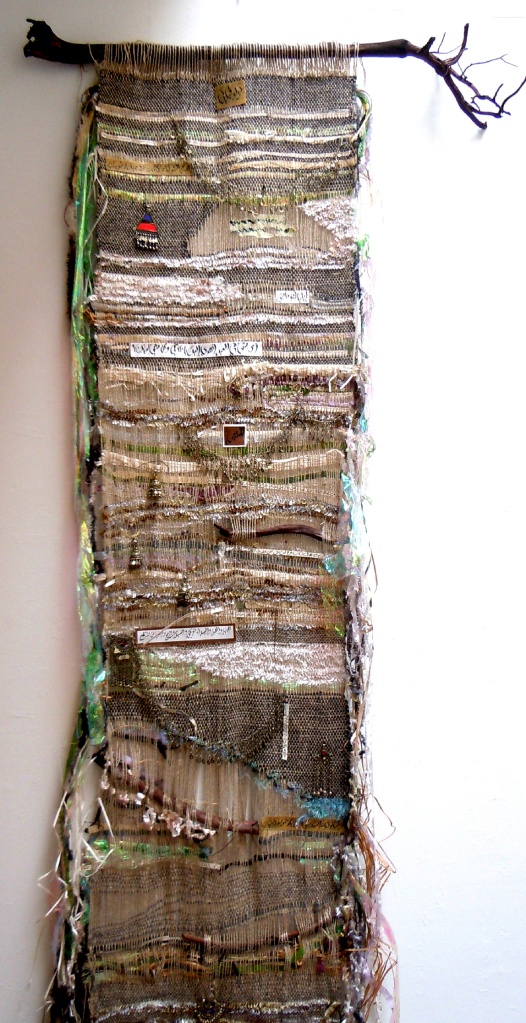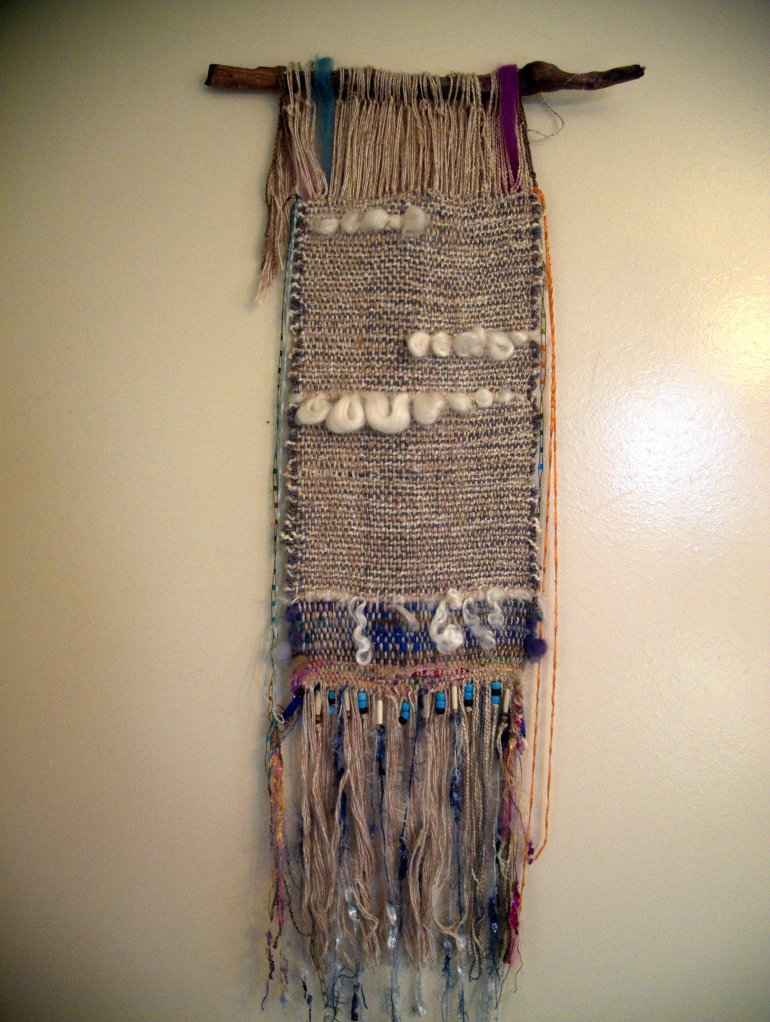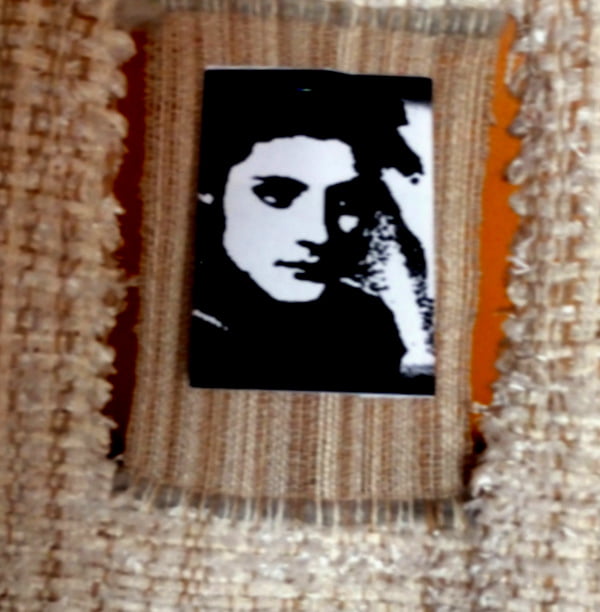British-Syrian artist Bayda Asbridge’s mother died in Damascus in 2012. She was unable to attend the funeral. Instead, along with her sisters, she turned to the Japanese technique of Saori weaving to honour her seamstress mother. Here she explains why.
I knew weaving would be the answer to help in our joint grief because it links us to our background and identity as Arab women from Syria. Our country has always been famous for its woven fabrics, looms, damask and other textiles. It formed an important centre on the Silk Road route going as far back as the Middle Ages with its celebrated bazaars, crafts and artisans.

Weaving makes me feel privileged and honoured. It has helped me tremendously with sorting out many issues, especially in dealing with the past and the nostalgia for my homeland, people and language. But, most importantly, it has made the dead ends of my life form a full circle that tells me who I am and what my purpose is here on earth.
Since learning under Mihoko Wakabayashi in Worcester from February 2012 onwards, something deep within me has been triggered. On some days, I even feel like getting down on my knees to embrace the loom.
I think also about all the women who have ever spent hours in front of their looms making items for their loved ones, but how sad that much of their effort has been taken for granted.
This post is abridged. The original article can be found on the blog Nahla Ink.
To see more of Bayda’s weaving, scroll down….







